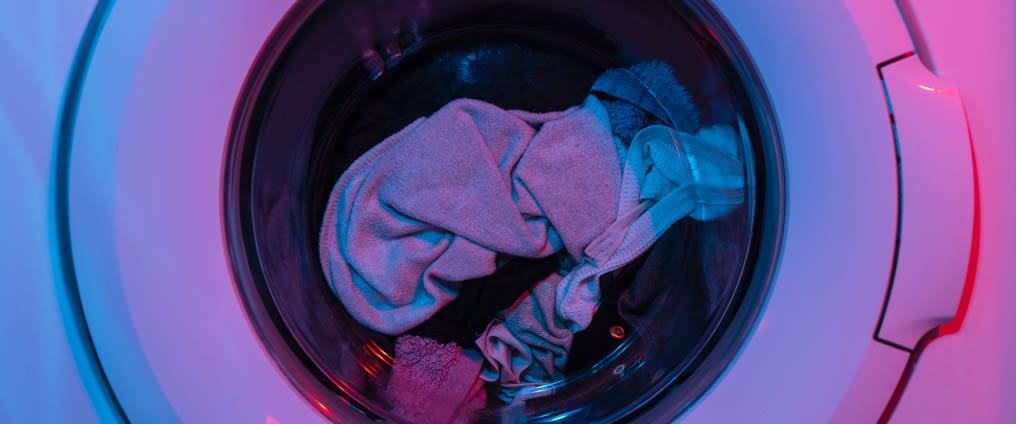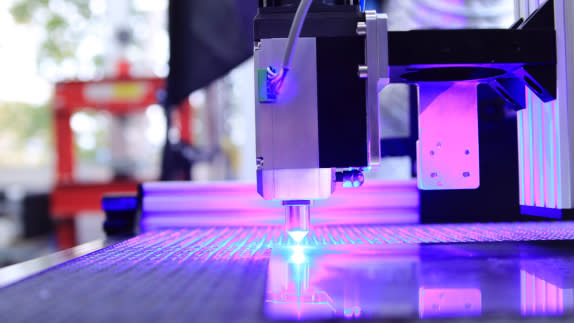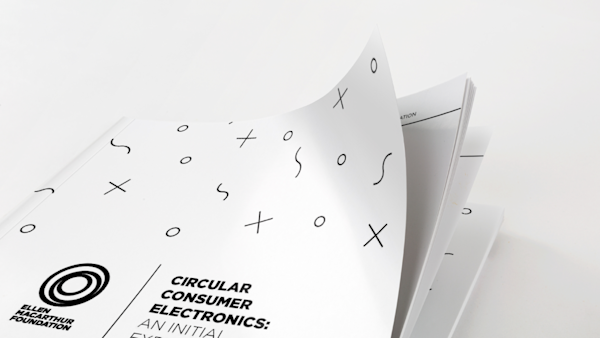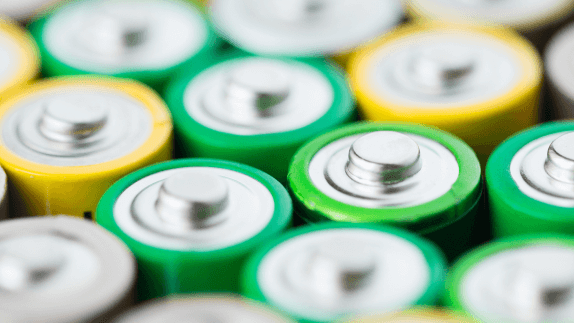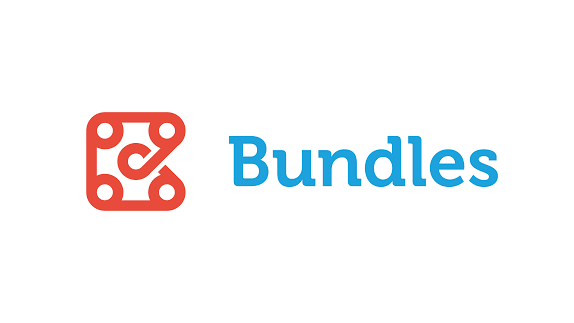
The Challenge: Mass production of items such as washing machines and coffee-machines result in a high turnover of cheap products with a short lifetime. This results in a large amount of material waste and significant lost value. How can we reduce waste and make good quality accessible for everyone?
The Solution: Bundles designs technology to offer products on a pay-per-use basis. Applying Internet of Things technology enables product monitoring, while maintenance and refurbishment of higher quality machines preserves the product integrity for multiple cycles.
What makes it especially circular? The lifetime of a product is managed by experts in refurbishment or remanufacturing. Besides that, consumers are more aware of their personal usage, since Bundles is able to track user data based on the power demand of the machine.
The Result: A subscription model for products provides consumers with pay per use of a durable product, thereby increasing the usage rate and lifetime of everyday equipment.
Digital technology can unlock better and longer product use
The idea of an ‘Internet of Things’ (IoT) has captured public attention and permeates the mainstream tech and business media. We hear about how billions of devices will be connected to the Internet in coming years and the changes this will bring, but how might this impact the design of products and – perhaps more importantly – business models? Dutch start-up, Bundles, is demonstrating the benefits of a holistic view by applying IoT technology to the laundry, and more recently, the coffee industry.
Marcel Peters was working at a utilities company and was part of the emergence of the Internet of Things, working on a smart meter to monitor domestic energy use. Within this industry, he began to notice that this new connectivity was primarily being applied to remote control or monitoring, or for ‘smart’ devices – an oven that can download recipes or fridge that tells its owner that they need to buy milk. This potentially groundbreaking technology was used to give additional features to products that were still sold in the traditional way, and hadn’t been applied to a pay-per-use model in a way that supported maintenance and lifetime management of materials.
As a result, in 2014, Marcel established Bundles, a company that started by offering clean clothes on a pay-per-wash basis, allowing customers to pay for the performance, not the product. In 2017, Bundles also launched CoffeeBundles, a subscription model that provides “Coffee as a service”. Customers subscribe to the use of a high quality coffee machine and automatic delivery of coffee beans, based on personal preferences and amount of coffee usage.
In some respects, the process is comparable to the purchase of a mobile phone contract. Customers go to the Bundles website and select their machine requirements and expected use frequency, enabling Bundles to suggest a monthly fee. After payment of a deposit and the first monthly fee, the appliance is installed, and the previous machine removed if necessary. Once the device is connected to the Internet, the user is ready to go. After the first month the user receives an overview of how often they used the machine, and can have their tariff adjusted accordingly.
The leasing scheme transforms a long-term investment in a 10,000-cycle machine into multiple cash flows and the right to use the machine for a certain period of time. This results in an economic win-win situation and yields positive material and energy implications through prolonged lifetimes of the products.
- Towards the Circular EconomyCircular EconomyA systems solution framework that tackles global challenges like climate change, biodiversity loss, waste, and pollution. It is based on three principles, driven by design: eliminate waste and pollution, circulate products and materials (at their highest value), and regenerate nature. vol. 1, 2012, Ellen MacArthur Foundation
The consumer is in control of use, manufacturer is in control of the lifetime
However, one important difference from the mobile phone model is that users can end their relationship with Bundles at any time. While Marcel admits that this is a slightly greater cost to the business, it has been crucial in reminding customers that they are in control. One source of apprehension towards such performance economy models is that customers will be at the mercy of one company or platform for all manner of household items. As a result, Bundles have made terminating the contract as easy as possible.
While the Bundles technology involves effectively ‘retrofitting’ a standard washing machine available on the market today, the choice of machine has still been crucial for Marcel in selecting a provider for Bundles. According to Marcel, Miele is the only remaining manufacturer that uses 100% reusable or recyclable materials. Open up one of today’s washing machines from other manufacturers, and you’ll often find materials chosen for their lower cost rather than long-term durabilitydurabilityThe ability of a product, component or material to remain functional and relevant when used as intended. or recyclabilityrecyclabilityThe ease with which a material can be recycled in practice and at scale. – for instance, stainless steel has been increasingly exchanged for plastics, and cast iron for concrete. This has taken average lifetimes from 10,000 hours for a high-quality machine down to 2,500 hours for a low-quality unit. Hence, when an appliance returns to Bundles, it can be repaired or remanufactured, ready for the next user.
In an ideal world, a Bundles appliance would be designed specifically for the business model, and according to Marcel, would look quite different to those on the market today. Not only could connectivity and monitoring hardware be integrated, but because the product is differentiated on the service it provides, rather than unnecessary features or pseudo-technologies, the resulting appliance could be simpler and more user-friendly.
Benefits across the board
The Bundles business model offers multiple benefits, both to the user and more widely. Bundles note that consumers do have an important role in bringing about progress, but only when enabled with a suitable business model. For while a large proportion of the public is aware of the need to make better buying choices in terms of energy use, materials, or ethics, often their ability to influence these factors is actually very low, and they are unable to visualise or quantify the impact of the ‘right’ choice.
Bundles aims to go beyond generic advice, to using Internet of Things data to enable customised performance tweaks and continuous improvement; optimising machine load, cycle duration, temperature and detergent use, and all variables that can waste money for the user and damage appliances. In this way, not only do customers get household jobs done in an easy and affordable manner, but there are wider economic benefits. In addition to energy savings, the ability to monitor, maintainmaintainKeep a product in its existing state of quality, functionally and/or cosmetically, to guard against failure or decline. It is a practice that retains the highest value of a product by extending its use period., repairrepairOperation by which a faulty or broken product or component is returned back to a usable state to fulfil its intended use., and refurbishrefurbishReturn a product to good working order. This can include repairing or replacing components, updating specifications, and improving cosmetic appearance. the higher quality machine preserves product integrity for multiple cycles, breaking from the current resource-intensive linear model.
